A language like no other, spoken by a people whose appearance on the European continent is shrouded in mystery. Delicious food, amazing music, and four hundred different dances. The heritage of the Basques is not only enigmatic but also rich and fascinating. Are you ready for a culture trip? Read the article below to find out the best ways to encounter Basque culture.
After getting to know the indigenous Sami people, who live in the northernmost and coldest part of Europe, it is time to travel to a warmer place. This time we are going to get acquainted with the culture of the Basques – nearly 3 million indigenous people who inhabit the so-called Basque Country that is located in Spain and France.
The Basques are thought to be one of the most enigmatic European groups. The origin of the Basques, or Euskaldunaks in their native language, is shrouded in mystery. For example, the language spoken by them has no connections to any other.
Last year, there was a major breakthrough in the anthropological studies concerning the Basques. PNAS, one of the world’s most-cited and comprehensive multidisciplinary scientific journals, has published a study according to which, based on the DNA obtained from ancient remains, the Basques descend from early farmers who arrived in Europe from the Near East about 7000 years ago.
According to the research, in the early phase of settlement the Basques cross-bred with a tribe of hunters and then became isolated from other groups. The most probable reason was a difficult geographical location that precluded contact with other tribes. That is the reason why the Basque area was basically not affected by the migrations that shaped other European genetic patterns.
Sounds fascinating, doesn’t it? Get inspired to get to know the oldest European culture by reading our list of places and events taking place in the Basque Country and showcasing the amazing heritage of the Basques.
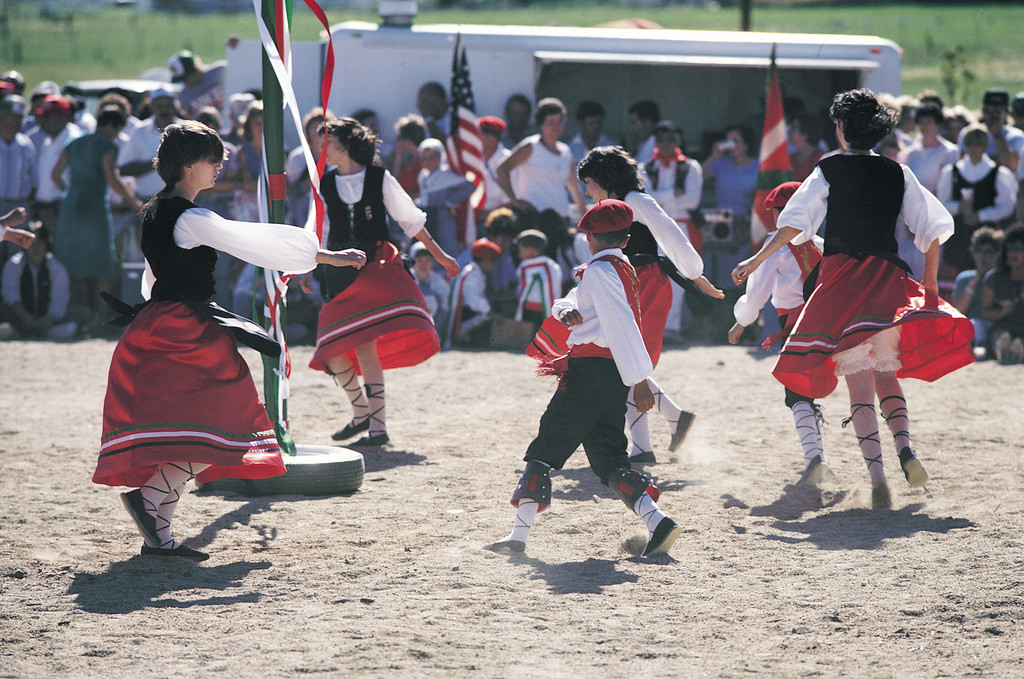
Basque dance, Reno Tahoe
Semana Grande
Semana Grande means a ‘big week’ in Spanish, and it is definitely one of the most important events for the Basque communities. Big weeks are celebrated across Spain, usually in August. Bilbao’s Aste Nagusia – the big week in the Basque language – lasts for nine days and is one of the greatest celebrations of Basque culture. The streets are full of food and drink stands, as well as giants’ parades. Musicians playing traditional songs and dancers presenting historic routines both during the day and late at night are the top attractions of the festival, and so are the rural Basque sporting competitions that include wood chopping and stone carrying.
San Telmo Museum
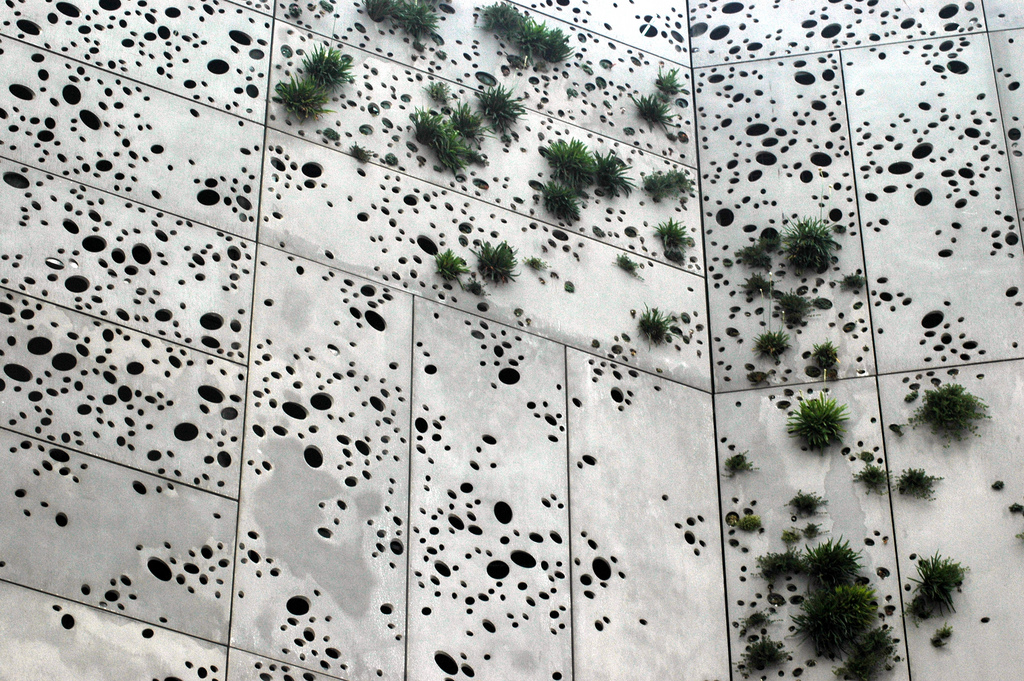
San Telmo Museum’s artistic wall, triplefivedrew
With an over hundred-years-long history, the San Telmo Museum is the oldest museum in the Basque Country. Located in San Sebastian’s old town, the museum’s building is itself a real cultural treat thanks to its innovative hillside installation. One part of the museum is located in a Dominican convent that was built in the 16th century, while the new building that comprises the second part is recognized internationally as a perfect example of cooperation between architects and artists. The museum presents 26 thousands ethnographic, photographic, artistic, archaeological and historical exhibits. It showcases the traditions, as well as the historical struggles, of the Basques and their fight for independence. For several years now, the museum has also played a role as a cultural and research center for Basque heritage.
Fetes de Bayonne
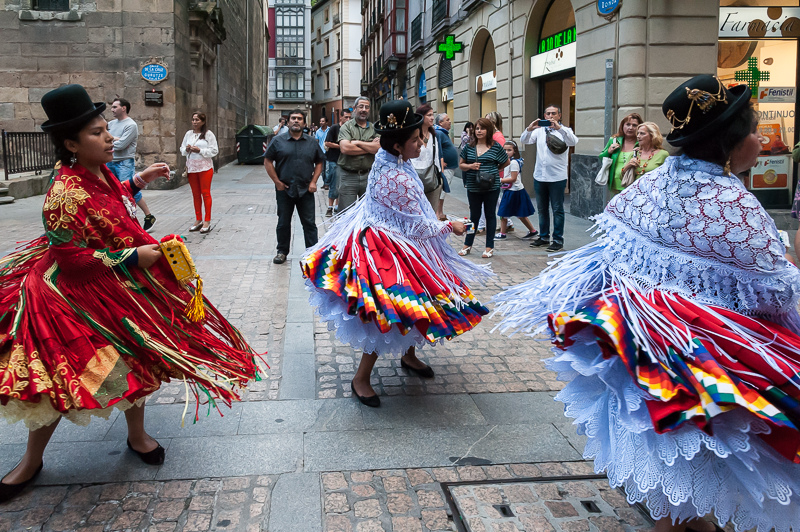
Aste Nagusia dancers, Jacqueline Poggi
For five days, vehicles are banned from entering the city of Bayonne as more than a million visitors get carried away by the largest festival in France. Traditionally, the five nights and days of non-stop partying start on the Wednesday evening before the first weekend in August with throwing the keys from the balcony of the town hall to the cheering crowd. For over 80 years Fetes de Bayonne has been an event full of parades, cow races, fireworks, dances, and concerts of the bandas (bands playing in the streets). Festayres (participants in the Fetes de Bayonne) all wear white clothes and red cintas (scarves). For this year’s edition, as always, there will be many attractions for visitors of all ages, including sporting events, a kids’ day, and loads of delicious food.
Espelette and its peppers
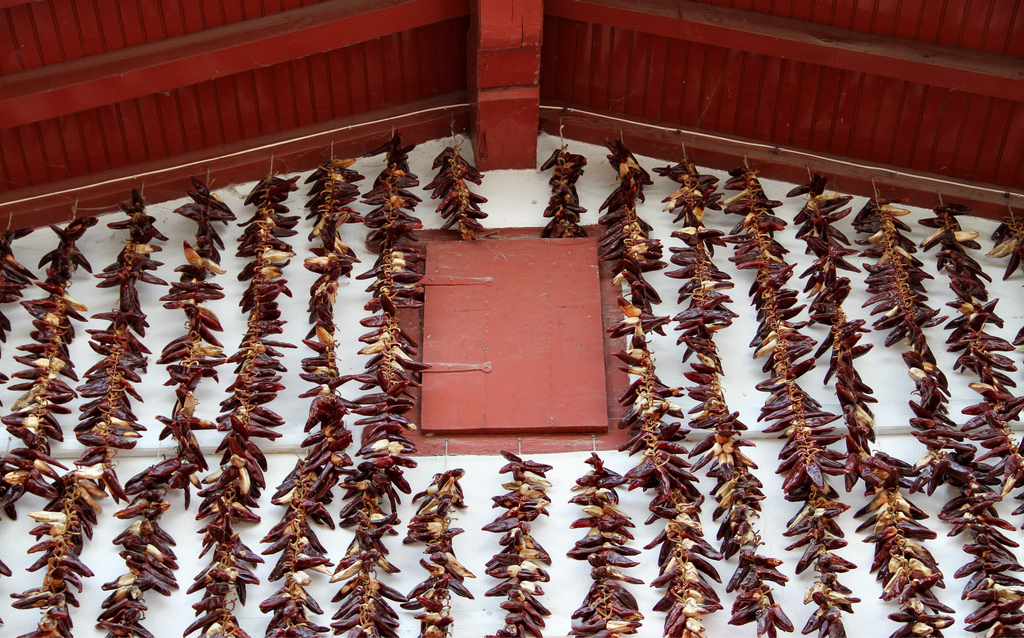
Peppers house, dynamosquito
Espelette is a typical Basque village located in the French part of the Basque Country with atmospheric streets and houses decorated with green and red window shutters. The town is well-known for its peppers – in the 16th century, a Basque navigator who sailed with Christopher Columbus brought chili peppers to the region, and since then they have been a part of daily life. The Espelette peppers are such an important part of the town’s heritage that every October it celebrates them with a festival full of Basque dances, music concerts, athletic competitions, and of course amazing food spiced up by peppers.
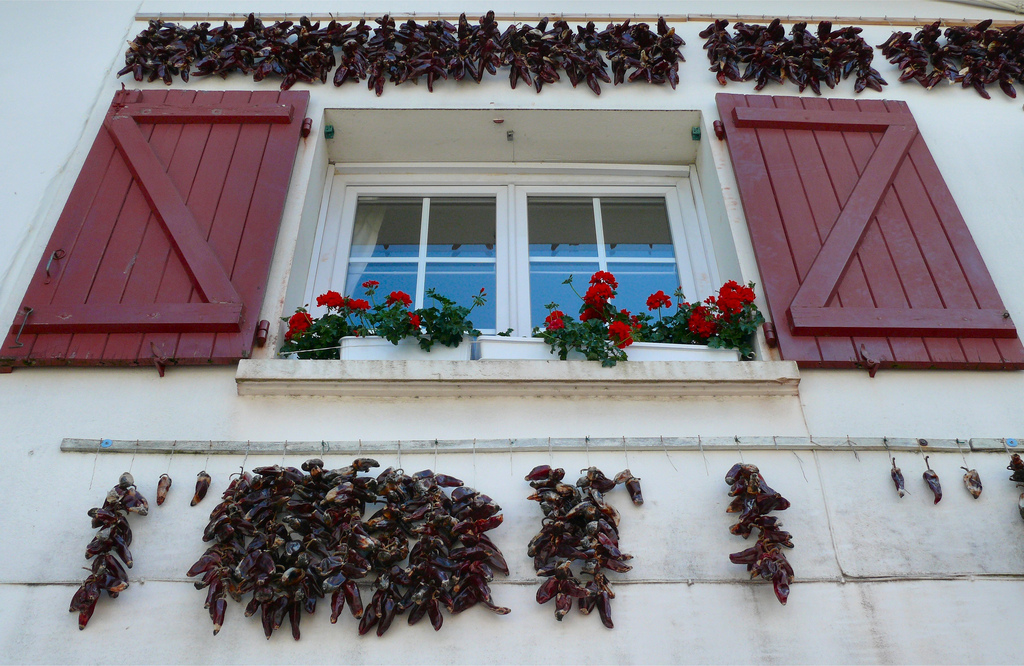
Drying peppers in Espelette, dynamosquito
Can’t go to the Basque country at the moment?
There are many cultures to discover and countless places to visit. Even though sometimes we might not be able to go to some places, some cultural traditions can be discovered in our homes – and also in our kitchens. How about a Basque culinary experience for your next dinner? Basques have a rich cuisine that is definitely worth getting to know. A definite must-try is marmitako – a meal that was a delicacy for Basque fishermen and later on became a part of the traditional cuisine. There are even separate websites devoted exclusively to this delicious stew made of tuna and potatoes. Enjoy your meal or – as it would be said in the Basque language – on egin!
Support us!
All your donations will be used to pay the magazine’s journalists and to support the ongoing costs of maintaining the site.
Share this post
Interested in co-operating with us?
We are open to co-operation from writers and businesses alike. You can reach us on our email at cooperations@youthtimemag.com/magazine@youthtimemag.com and we will get back to you as quick as we can.









